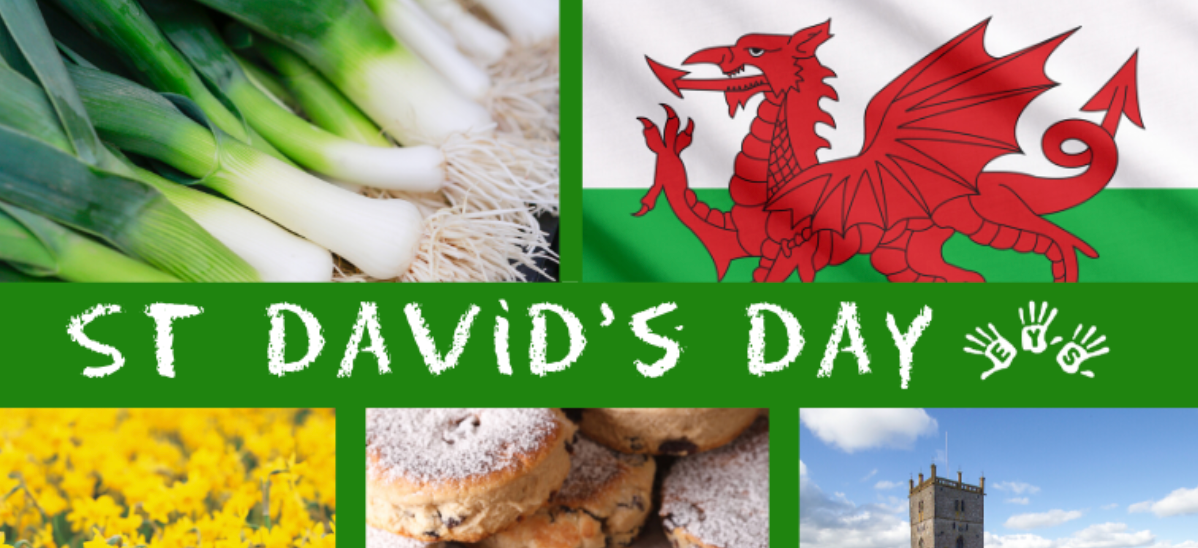01792 514 516
Happy St David's Day!

Happy St David's Day!! We know many of our tenants are not Welsh, so we have summarised what St David's Day is for you!
St. David's Day, known as Dydd Gŵyl Dewi Sant in Welsh, is a significant celebration in Wales that occurs on the 1st of March each year. This cultural holiday honors the country's patron saint, St. David, who played a pivotal role in spreading Christianity in Wales during the 6th century. As a Graduate School student, I will delve into the history, traditions, symbols, and festivities associated with St. David's Day, providing a comprehensive understanding of this important Welsh holiday.
Firstly, the origins of St. David's Day can be traced back to the life and achievements of St. David, or Dewi Sant in Welsh. He was born in the mid-6th century and founded a Celtic monastic community in what is now known as St. Davids, Pembrokeshire. St. David's influence on Christianity in Wales was considerable, and his teachings on simplicity, purity, and modesty resonated with the Welsh people. This led to his canonization in the 12th century and the subsequent establishment of St. David's Day as a recognized holiday.
On St. David's Day, the Welsh people proudly display their national identity and rich cultural heritage. One of the most prominent symbols associated with this celebration is the daffodil, or Cenhinen Bedr in Welsh. This bright yellow flower blooms in early spring, coinciding with the holiday, and is seen as a representation of rebirth and new beginnings. Welsh people often wear daffodils or leeks, another national emblem, on their clothing to demonstrate their Welsh pride.
Furthermore, St. David's Day is typically accompanied by various festivities and traditions. Schools in Wales often hold special assemblies, concerts, or eisteddfods (competitions) where students perform Welsh songs, poems, and dances. Traditional Welsh cuisine also plays a significant role in the celebrations, with dishes such as Welsh cakes, bara brith (fruit loaf), and cawl (a hearty soup) being enjoyed. There may also be parades, processions, and concerts organized throughout the country to commemorate the occasion.
In addition to these public celebrations, many Welsh people attend church services dedicated to St. David on his special day. These religious ceremonies uphold the reverence and respect for St. David, allowing individuals to reflect on his teachings and accomplishments. The services often involve hymns, prayers, and readings that honor St. David's legacy and emphasize the enduring values he promoted.
St. David's Day also serves as an opportunity for the Welsh diaspora around the world to come together and celebrate their heritage. Welsh communities in countries like the United States, Canada, Australia, and New Zealand organize events to mark the occasion, fostering a sense of camaraderie and connection with their homeland. This global celebration showcases the strength and pride of the Welsh people, even when far from their native land.
St. David's Day holds immense importance in Welsh culture as a day to honor their patron saint, St. David. This celebration brings together the Welsh people, both in their home country and worldwide, to commemorate their heritage, customs, and traditions. The holiday encompasses various activities, from wearing national symbols like daffodils and leeks to participating in eisteddfods and church services. Although St. David's Day may not garner the same global attention as some other cultural holidays, its essence of community, national pride, and the celebration of Welsh identity makes it a cherished day for all who are connected to Wales.
LATEST NEWS AND OUR SOCIAL MEDIA





All Rights Reserved | Digs Swansea





